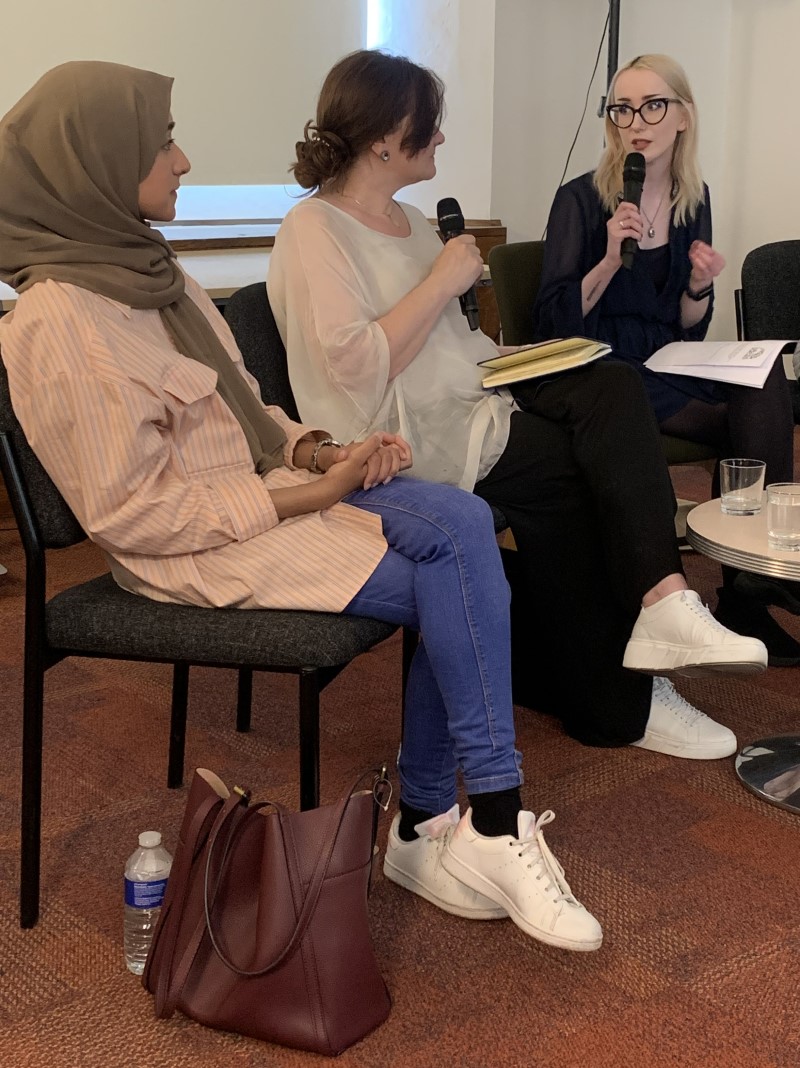Reimagining Healthcare: Treating the body and mind
How can we reimagine and rebuild our current healthcare system to be more inclusive and accessible for people with severe mental illness?

A panel discussion was held on 12 June as part of this year's Festival of Ideas programme. The aim of the event was to explore how the current healthcare system might be reimagined and rebuilt to be more inclusive and accessible for people with severe mental illnesses (illnesses involving psychosis, including schizophrenia and bipolar disorder).
The panel was comprised of two members of DIAMONDS voice - the patient and public engagement panel of the DIAMONDS study led by the University of York which aims to improve diabetes self- management and outcomes for people with severe mental illness - Gary Hellewell and Alison Potts. Also present were Ramsha Hussain, a mental health nurse with Bradford District Care NHS Foundation Trust and IMRY Director Professor Lina Gega. The event was chaired by Dr Claire Carswell who is a Research Fellow in the Mental Health and Addictions Research Group in the Department of Health Sciences.
After welcoming everyone to the event, Claire invited each of the panellists to reflect on what it can be like to manage both mental and physical health needs, drawing on their experience as service users, carers, mental health practitioners and researchers. Gary spoke about the importance of making sure health information and guidance are presented in an accessible way to service users and described how he had been involved in co-designing and co-producing the DIAMONDS intervention, including a workbook and digital app to support diabetes self-management for people with severe mental illness. He also emphasised that more should be done to offer opportunities and encouragement for people with lived experience to take part in research, as they all have something both to give to and gain from this. Alison commented on the challenges of being a carer during the COVID pandemic, not least because of the interruption to many health and social care services. She also observed that too often individuals can fall between 'the cracks' in services, especially if they are not able to access the usual care delivery pathways, for instance, because they do not have access to the internet or the necessary e-literacy skills.
Lina recollected how, during her time as a mental health nurse, she saw first-hand how untreated physical health problems can have as detrimental an effect on a person as mental health problems. Mental and physical health influence each other in many and complex ways; however, health and care services are not set up to properly handle these complexities. These views were echoed by Ramsha, who started her first nursing assignment in an elderly people's ward at an in-patient mental health hospital at the beginning of the pandemic. There she experienced the challenge of providing care for a patient with a dual diagnosis of schizophrenia and uncontrolled diabetes. She argues that much more needs to be done to get mental health NHS trusts and acute hospital NHS trusts to work together to coordinate the delivery of effective and comprehensive patient care. On a positive note, however, she related how she had been promoting a useful strategy for helping patients manage their physical and mental health through the DIAMONDS programme, which is to encourage them to recognise the natural fluctuations in their health and energy levels and work out with them what they can reasonably expect of themselves on a good and on a not-so-good day.
There were plenty of enthusiastic questions and observations from the 60-strong public audience. One priority that was voiced was to research ways of more effectively addressing the adverse metabolic side-effects of anti-psychotic drugs which typically lead to weight gain, in turn increasing a person's risk of developing associated diseases, including diabetes. Success in this area would help to reduce the pronounced mortality gap between individuals with severe mental illness and the rest of the population, which is not so much caused by mental illness per se but by physical co-morbidities like diabetes. At the same time, it was agreed that it would be beneficial to embed mental health nurses and specialists in A&E and acute general hospital care and to better support the creation and functioning of multidisciplinary health care teams (teams of clinicians and carers that reflect the whole spectrum of the patient's health and care needs) such that they become the rule rather than the exception.

Notes to editors:
Read more about DIAMONDS